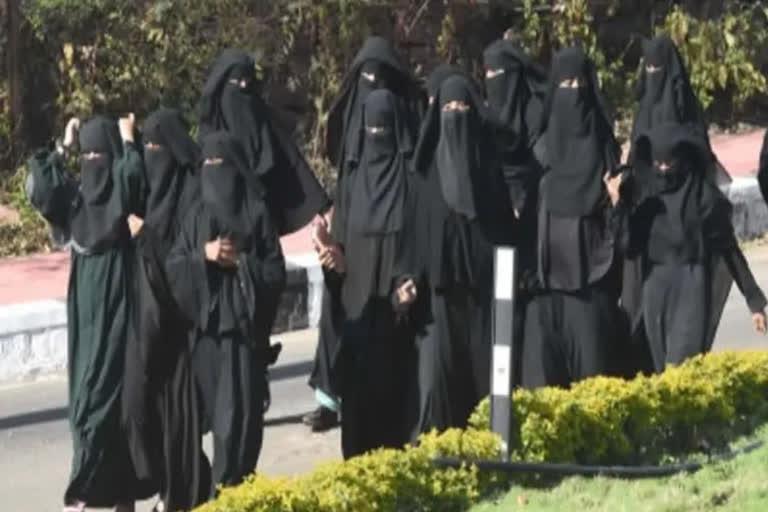New Delhi:The Supreme Court continued the hearing on the set of petitions challenging the ban on hijab in educational institutions in Karnataka on Monday. Marking the seventh day of the hearing, the SC bench led by Justices Hemant Gupta and Sudhanshu Dhulia will continue the hearing on Tuesday, to begin at 11 am. The court also observed that in tomorrow's hearing, senior advocate Dushyant Dave will be allowed to present his arguments till 1 pm, after which no one else from the petitioners’ side will be allowed to speak.
Appearing for the petitioner, Advocate Dushyant Dave on Monday argued that the educational institutions in question here are not military schools or Nazi organizations, with regimentation. "We are talking about pre-university college here. Nothing is wrong with a Sikh wanting to wear a turban, a Hindu willing to wear a tilak, or a Christian wanting to wear a cross. Everybody has that right and that is the beauty of social life. A woman wearing a hijab is also the same," Dave argued.
Dave further pointed out that the fears of Dr. B R Ambedkar and Sardar Vallabhai Patel were coming true. "These acts show that there is a pattern to marginalize the minority community. You want unity, but today you have to ask permission from a magistrate if a Muslim and Hindu want to marry," he said.
"You are passing this resolution for uniformity, but the intent is something else. We are telling the minority community to do what we tell them to. Clothing is a part of 'riti-riwaaz'. I have never seen my mother with her head not covered with a pallu, but that is not a problem," he further observed.
Highlighting that the judicial magistrates 'are not just custodians of fundamental rights for us citizens, but they are the ones who can alone stand between parliamentary excesses and citizens', the counsel said, "The only religion that matters to this Court is the Constitution of India. As important as Gita for Hindus, Quran for Muslims, Guru Grant Sahib for Sikhs, and Bible for Christians, without Constitution, we will be left nowhere."
The Karnataka High Court had on March 15 upheld a state government order empowering committees of government colleges to ban the wearing of hijab by Muslim girl students on college campuses across the state. A group of Muslim girls from colleges in Karnataka approached the High Court after they were denied permission to attend classes on account of wearing hijab.
A plea, among several pleas challenging the High Court orders, was filed at the apex court contending that the High Court failed to take note of the fact that the right to wear a Hijab comes under the ambit of the right to privacy under Article 21 of the Constitution of India. During the previous hearing, Senior Advocate Kapil Sibal submitted before the Supreme Court that a student does not forego her fundamental rights the moment she steps into the school gate.
